GENE Roundtables gather participating Ministries and Agencies twice a year to share national experiences and strategies.
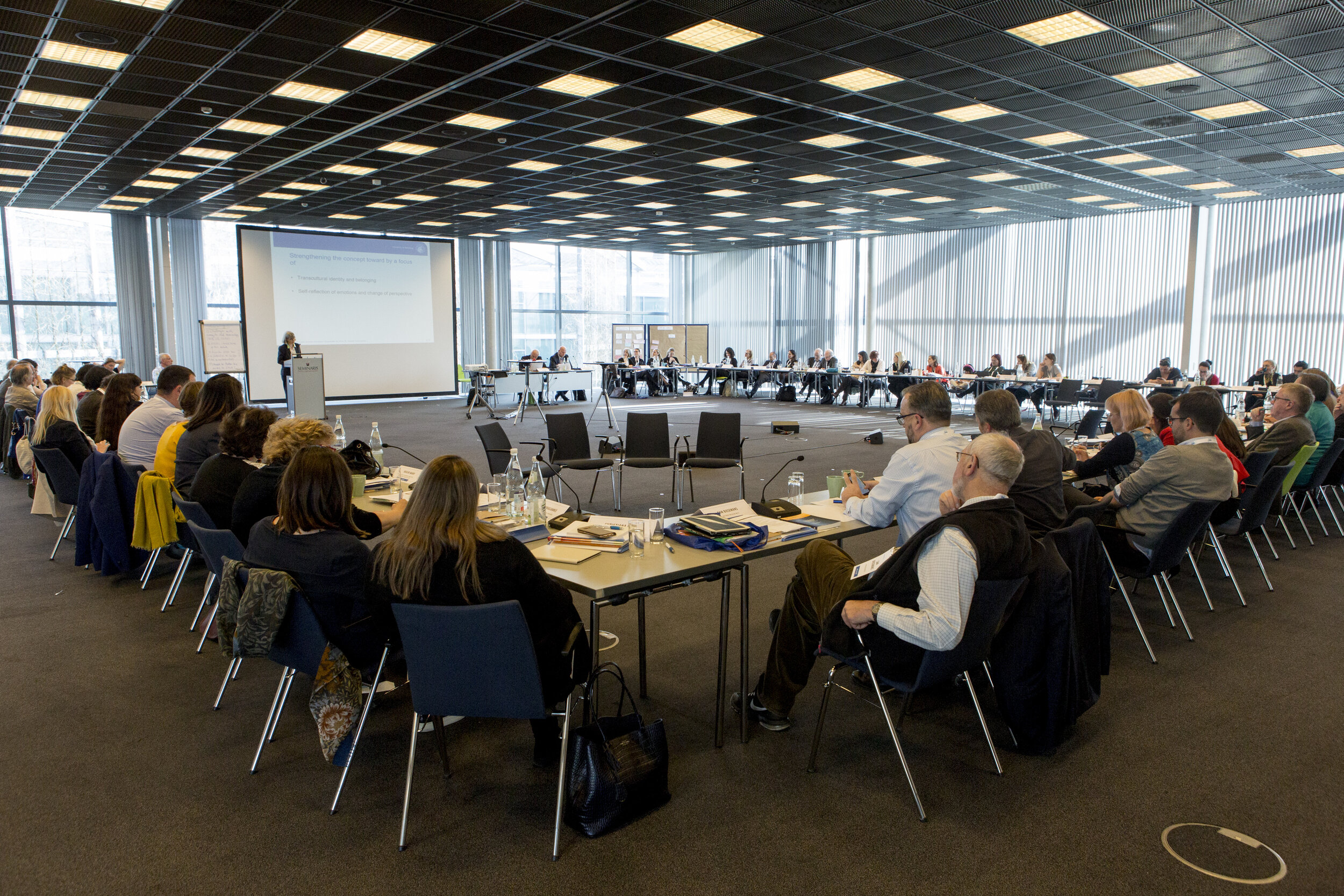
GENE has organised 53 Roundtables since 2001.
Hosted by participating Ministries and Agencies and facilitated by the GENE Secretariat, the roundtables involve:
sharing National Reports
identifying cross-cutting issues
sharing policy learning
forging a common European agenda on the increase and improvement of Global Education
The European Commission participates in the Roundtables as an observer.
GENE Roundtable 53 | 23-24 October 2025, Virtual: Global Education – crucial to the future of humanity, crucial to the future of Europe and the world
DAY 1 Summary
The first day of the roundtable focused on discussions pertaining to global education and its significance for the future of humanity, Europe, and the world. Annette Schoenflug, GENE Chair, welcomed participants, emphasising the importance of reflections on global education, collaboration, and innovation over the next two days.
Ukraine was warmly welcomed as a new observer member state. Erica Gerretsen, Director, DG INTPA, European Commission, discussed the significance of education in international partnerships and outlined the EU's commitment to maintaining education as a core strategic action through initiatives like the Global Gateway and Youth Action Plan. She emphasised the current urgent global challenges and reinforced a strong commitment to global education.
During the National Reports session at GENE Roundtable 53, member countries shared encouraging developments in Global Education policy and practice. Austria showcased the Global Maker Education Initiative, inspiring creative approaches to global learning. Belgium introduced a new barometer to measure Global Education implementation. Estonia presented an AI initiative supporting inclusive global learning. Germany celebrated the adoption of a new curriculum integrating Global Education across subjects. Despite challenges, these updates remind us that Global Education continues to grow, adapt, and inspire across Europe.
Working groups focused on strategising global education's policy narrative in a changing context and identifying opportunities within international frameworks. They deliberated on arguments supporting global education and potential policy briefings. The session stressed the necessity of collaboration and learning from each other's experiences for the advancement of global education.
Overall, the roundtable emphasised the need for action, embracing change while protecting shared values, and leveraging the role of policymakers in creating inclusive, sustainable educational frameworks.
DAY 2 Summary
The day focused on the collective effort to strengthen global education, especially its role in shaping the future of Europe and the world. Key discussions included:
1. Reflections on past achievements and ongoing efforts: The roundtable participants discussed the significance of global education in democracy and reflected on contributions such as the Dublin Declaration and strategies to overcome challenges in the education sector, including those brought about by political and financial constraints. Participants continued to share their national reports with developments in global education. Topics ranged from Portugal’s approval of its National Strategy for Development Education, other countries’ curriculum updates and new educational strategies to the effects of political support or budget cuts.
2. Ukraine joins the GENE Roundtable for the first time! Welcomed warmly by GENE Chair Annette Scheunpflug, representatives from the Ministry of Education and Science of Ukraine took part, for the first time, as observers — an important moment of solidarity and shared purpose. Albina Tsiatkovska, Director General for International Cooperation, spoke about education as an act of resilience: “Global education equips learners with critical thinking, empathy, and respect for human rights. In Ukraine, it is not abstract — it is a practical instrument of resilience, protecting societies from disinformation and polarisation.” Her message reminded all participants that, even amid war, education remains a force for peace, dignity, and truth.
4. Working Groups: Three main working groups were formed to deeply explore:
- The principle of "Leave No One Behind" in Global Education.
- The use of the Dublin Declaration at the national and local levels.
- Global education and curriculum integration, with a focus on innovative national initiatives.
5. Inspiring Keynote: “Dare to be brave. Resist and reinvent cooperation in a divided world.” These were among the closing words shared by Jean Van Wetter, CEO of Enabel – the Belgian Development Agency. He reflected on the importance of policymakers’ roles in transformation — calling on all of us to be bold, to defend shared values, and to ensure that governnts and education systems remain catalysts for peace and justice.
GENE Roundtable 52 | 27-28 March 2025, Bratislava, Slovakia: Global Education and Hope in Challenging Times
From Challenges to Action
Slovak State Secretary Dr. Slavomír Partila opened with a reflection on AI’s transformative role: “Technology that was science fiction a decade ago is now reshaping how we learn, work, and connect.” He stressed Slovakia’s push to balance technical skills with critical thinking and adaptability through curriculum reforms. But the challenge is global: How do we future-proof education while nurturing humanity’s “priceless” traits?
Hope as Active Resistance
GENE Director Liam Wegimont and GENE Chair Annette Scheunpflug framed hope as “active resistance” — a rejection of complacency. Citing Paulo Freire, they urged educators to “unveil opportunities for hope” amid polycrises. Hope, they argued, is rooted in action. It is not naïve optimism; it’s saying 'no' to inequality, climate inaction, and fear-driven politics.
Workshops as Collaborative Exploration
Participants took part in workshops focused on: future trends and scenarios for education; public opinion research in a rapidly changing development landscape; and the potential and challenges of using AI and Global Education.
Launch of the Latvian Peer Review Report
We extend our gratitude to our core partner for the process, the Latvian Ministry of Education and Science, and to Latvian stakeholders who engaged with the process and shared their knowledge and expertise. The peer review report contains insights and good practices from Latvia, as well as outlining opportunities for improving and increasing Global Education. Learn more about GENE Peer Reviews and download the report here.
As we gathered for Day 2 in Bratislava, the overarching theme of hope continued to resonate among the 50+ policymakers and educators present. Together, we explored how global education can serve as a powerful catalyst for positive change in an increasingly complex world.
The plenary panel showcased the inspiring initiatives of the 2024 GENE Global Education Youth Awardees, highlighting the innovative ways young leaders are addressing pressing global challenges. Their projects exemplify how hope can drive action, fostering collaboration and empowering youth to advocate for climate justice, social inclusion, and civic engagement.
In addition, the keynote from Gallup provided valuable insights into the essential needs of followers, emphasizing that hope is a universal requirement for effective leadership. This reinforces our commitment to nurturing hope within educational frameworks, ensuring that we equip future generations with the tools they need to navigate uncertainty and inspire change.
As we reflect on the discussions and collaborations from both days, we are reminded that hope is not merely an abstract concept; it is a call to action. It is about creating opportunities, fostering resilience, and building inclusive communities.
A heartfelt thank you to the Ministry of Education and Ministry of Foreign and European Affairs of Slovakia for hosting this roundtable.
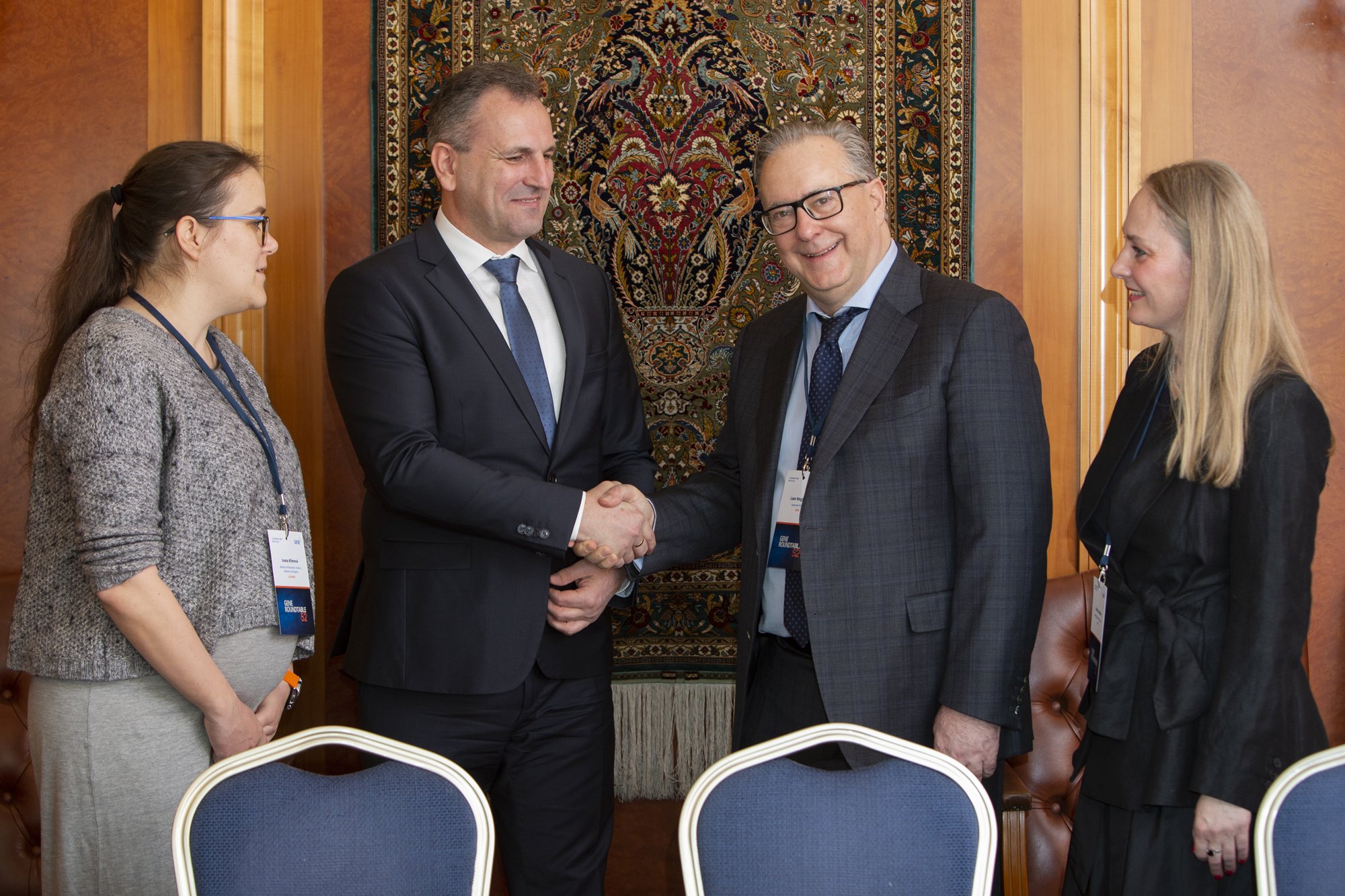
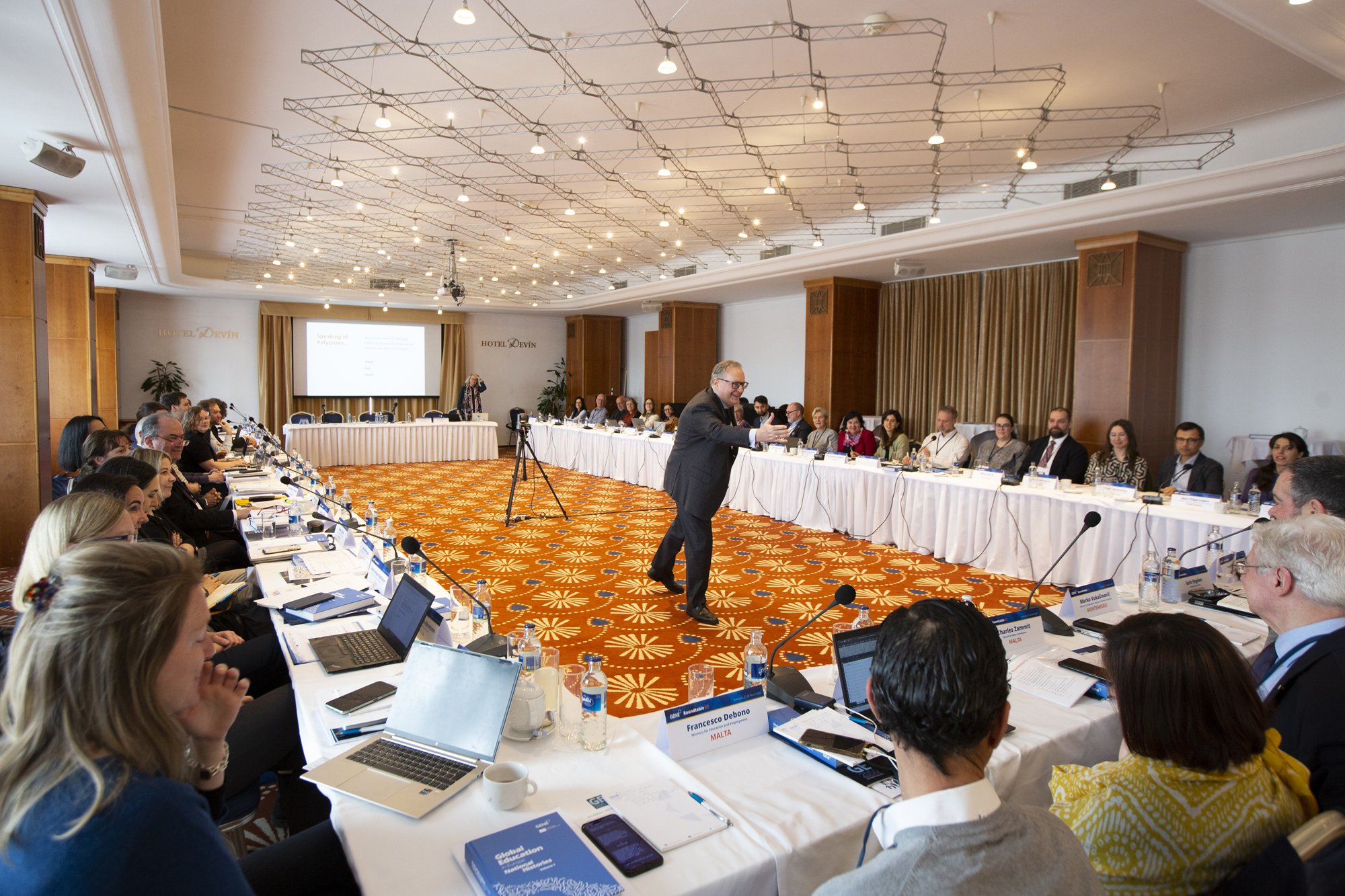
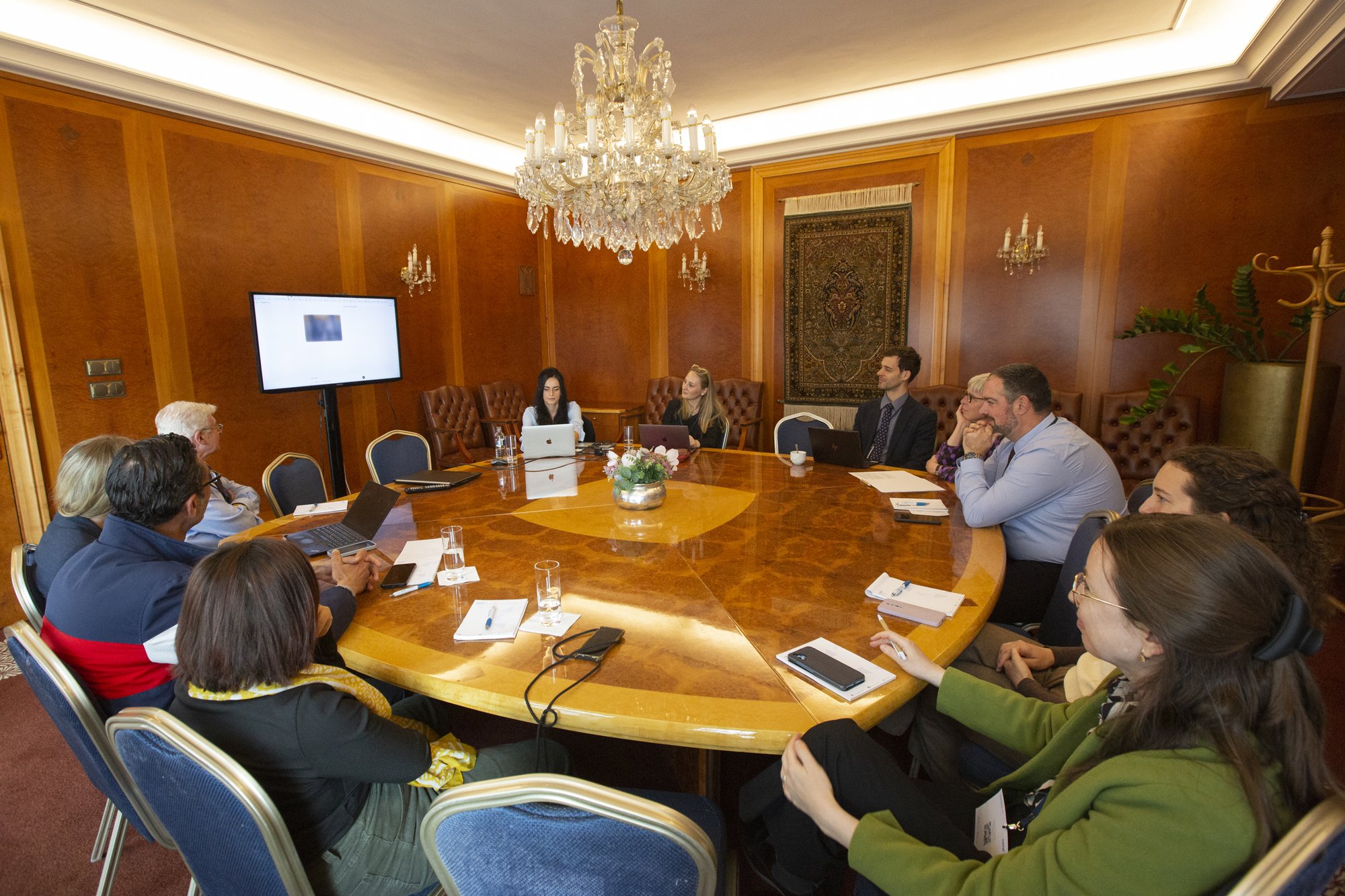

On 17-18 October 2024, GENE Roundtable 51 gathered virtually over 50 policymakers from Ministries and Agencies of Foreign Affairs and Education across 21 European countries, fostering collaboration on the evolving landscape of Global Education.
The Roundtable began with an opening by GENE Chairperson Prof. Annette Scheunpflug, who emphasised, "Education necessarily involves a reflection on the future." This thought guided discussions as participants shared national reports and engaged in policy networking.
Agnieszka Skuratowicz from DG INTPA highlighted the need for a transformative approach to education amid societal, economic, and technological changes. Her remarks set the tone for our discussions and collaborative efforts to address the global challenges and opportunities that lie ahead.
Niall Tierney, Director for Global Programmes and Global Citizen Education at the Department of Foreign Affairs, Ireland, underscored the urgency of enhancing global citizenship education (GCE) and reaffirmed Ireland's commitment to the principles outlined in the Dublin Declaration.
Youth participation was a key theme, with insights from Natasha Maimba, Ireland's UN Youth Delegate, who stressed the importance of education in achieving the Sustainable Development Goals (SDGs) and closing the digital divide for equitable access.
Throughout the Roundtable, participants engaged in working groups that explored critical topics such as the UN Summit of the Future and its implications for Global Education, the evolving EU context for policymakers, and the importance of making a case for Global Education in both Foreign and Development Policy. Discussions also focused on national strategy development, the role of the private sector in Global Education, and the vital connection between Global Education and youth, as well as teacher education and coordination.
GENE Roundtable 50
18-19 April | Madrid, Spain
GENE Roundtable 50 brought together over 100 Global Education Policymakers from Ministries and Agencies across Europe for insightful discussions. The event delved into the international education landscape, emphasising community engagement and key findings from studies like the ICCS. The panels explored global issues like climate change and the Asia-Pacific region's focus on Global Education.
Discussions also centered on the follow-up to the European Declaration on Global Education to 2050 (The Dublin Declaration). Esteemed speakers highlighted the importance of education in the green transition and the need for trust-building through Global Education. The roundtable aimed to realise the vision outlined in the Dublin Declaration, fostering collaboration and policy development for a brighter future in Global Education.
GENE Roundtable 49
19-20 October | Athens, Greece
Over 50 Policymakers from Ministries and Agencies, of Foreign Affairs and Education, from across Europe, came together in-person to share reports on national situations, identify cross-cutting issues, and learn together through policy networking for more and better Global Education.
GENE Roundtable 49 was a resounding success, bringing together policymakers from Ministries and Agencies across Europe in Athens. The event featured engaging discussions, policy networking, and knowledge sharing to enhance Global Education. Mr. Panagiotis Passas, Director General for International and European Affairs, Education for Hellenic Diaspora and Intercultural Education,
delivered an inspiring address and emphasised that professionals in the field of education share common values such as human rights, democracy, understanding, dignity, inclusion, and sustainability. He highlighted the transformative power of education, which instills hope for a better world.
The roundtable also explored GENE's future program, visited local schools showcasing impressive Global Education projects, and hosted workgroups on evaluation models, teacher education, and inter-ministerial cooperation. The event fostered collaboration and joint solutions, leaving a lasting impact on the field of Global Education.
Past GENE Roundtables
Roundtable 42: Online (Spring 2020)
On 8 May 2020, GENE ran its first-ever virtual Roundtable, which gathered 60 policymakers, representing 26 countries. National representatives shared country reports, identified issues of common concern, exchanged policy perspectives and solutions to current challenges.
Roundtable 41: Valletta, Malta (Autumn 2019)
The event included the award ceremony for the Global Education Ideas Award at the Maltese Chamber of Commerce, as well as workshops on cross-cutting policy issues, presentations of Global Education in Malta and guest speakers from Latin America.
Roundtable 40: Berlin, Germany (Spring 2019)
The Roundtable featured presentations, discussions, workshops, Open Space, country reporting and learning from German experiences in Global Education, as well as an address by the German Parliamentary Secretary of State, Ms. Maria Flachsbarth.
Roundtable 39: Brussels, Belgium (Autumn 2018)
Roundtable 38: Oslo, Norway (Spring 2018)
Roundtable 37: Nicosia, Cyprus (Autumn 2017)
Roundtable 36: Brussels, Belgium (Spring 2017)
Roundtable 35: Florence, Italy (Autumn 2016)
Roundtable 34: Lisbon, Portugal (Spring 2016)
Roundtable 33: Brussels, Belgium (Autumn 2015)
Roundtable 32: Vienna, Austria (Spring 2015)
Roundtable 31: Brussels, Belgium (Autumn 2014)
Roundtable 30: Brussels, Belgium (Autumn 2013)
Roundtable 29: Dublin, Ireland (Spring, 2013)
Roundtable 28: The Hague, the Netherlands (Autumn 2012)
Roundtable 27: Warsaw, Poland (Spring 2012)
GENE Roundtables are held under the Chatham House Rule to create a space for policy learning that allows policymakers to share their perspectives informally.
This website was created and maintained with the financial support of the European Union and the Ministries and Agencies that support GENE. Its contents are the sole responsibility of GENE and do not necessarily reflect the views of the European Union.
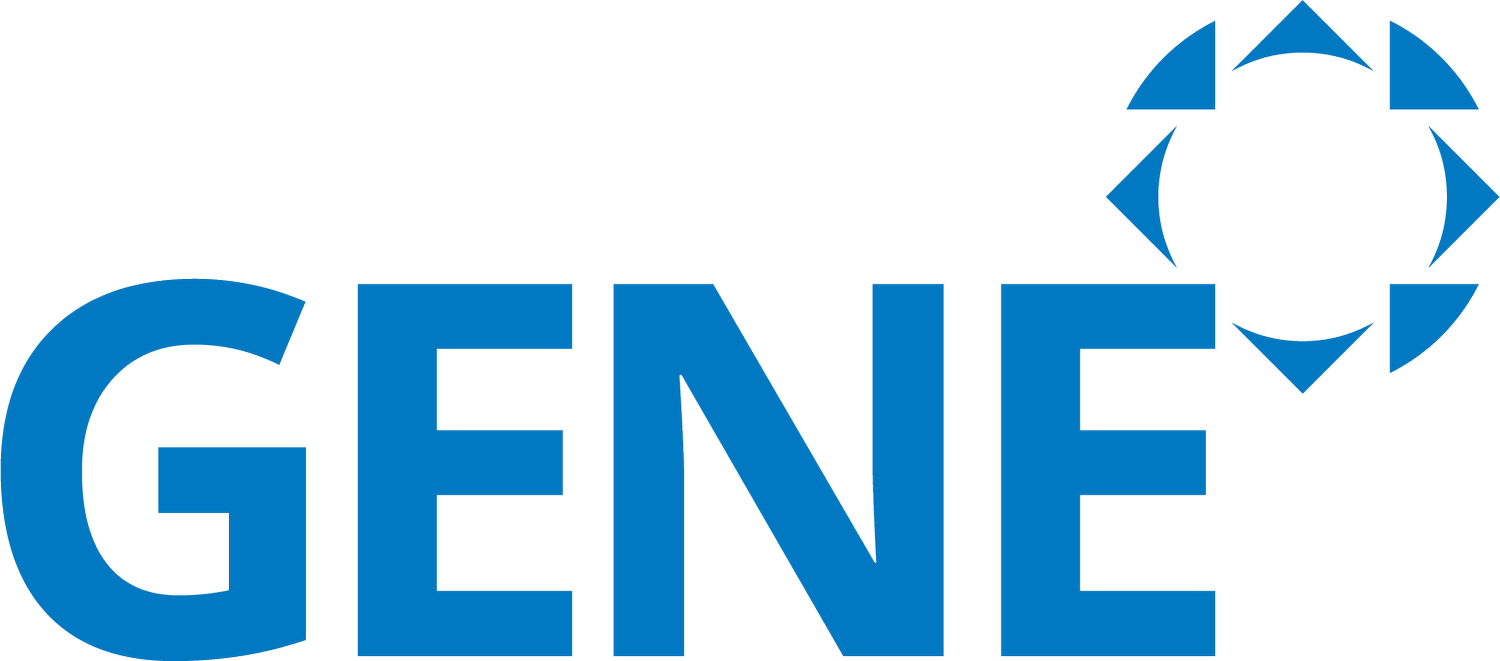
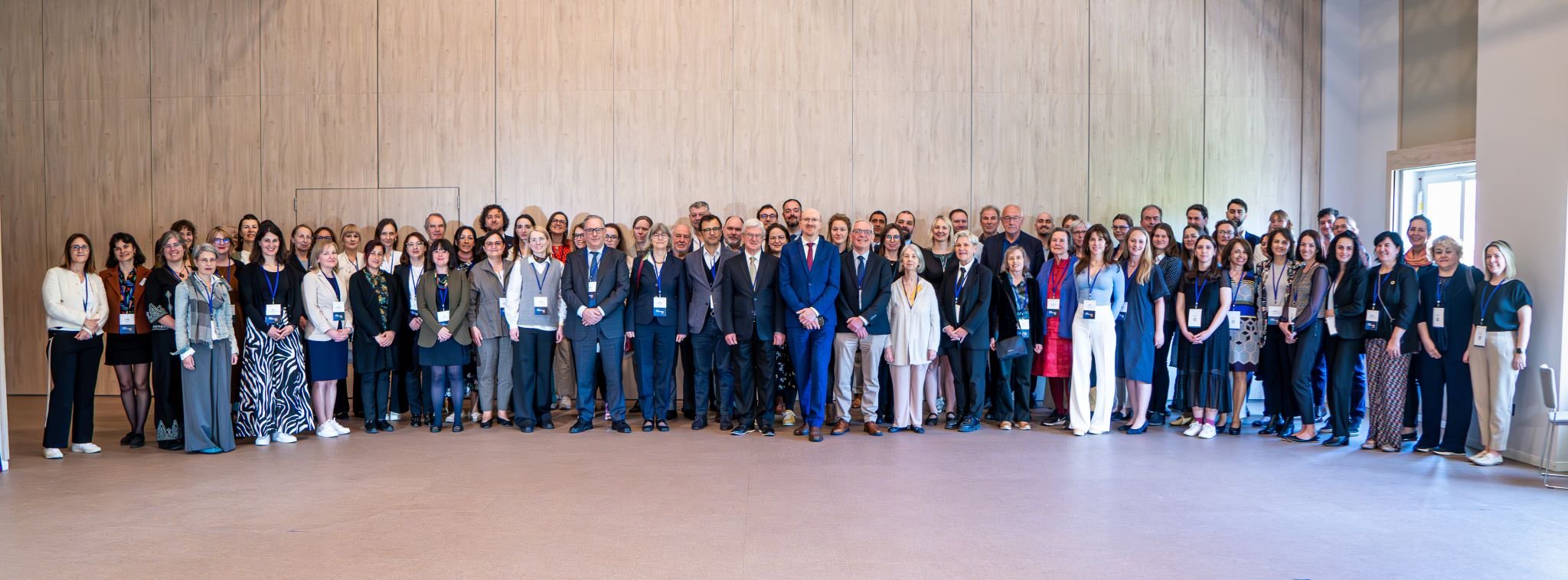

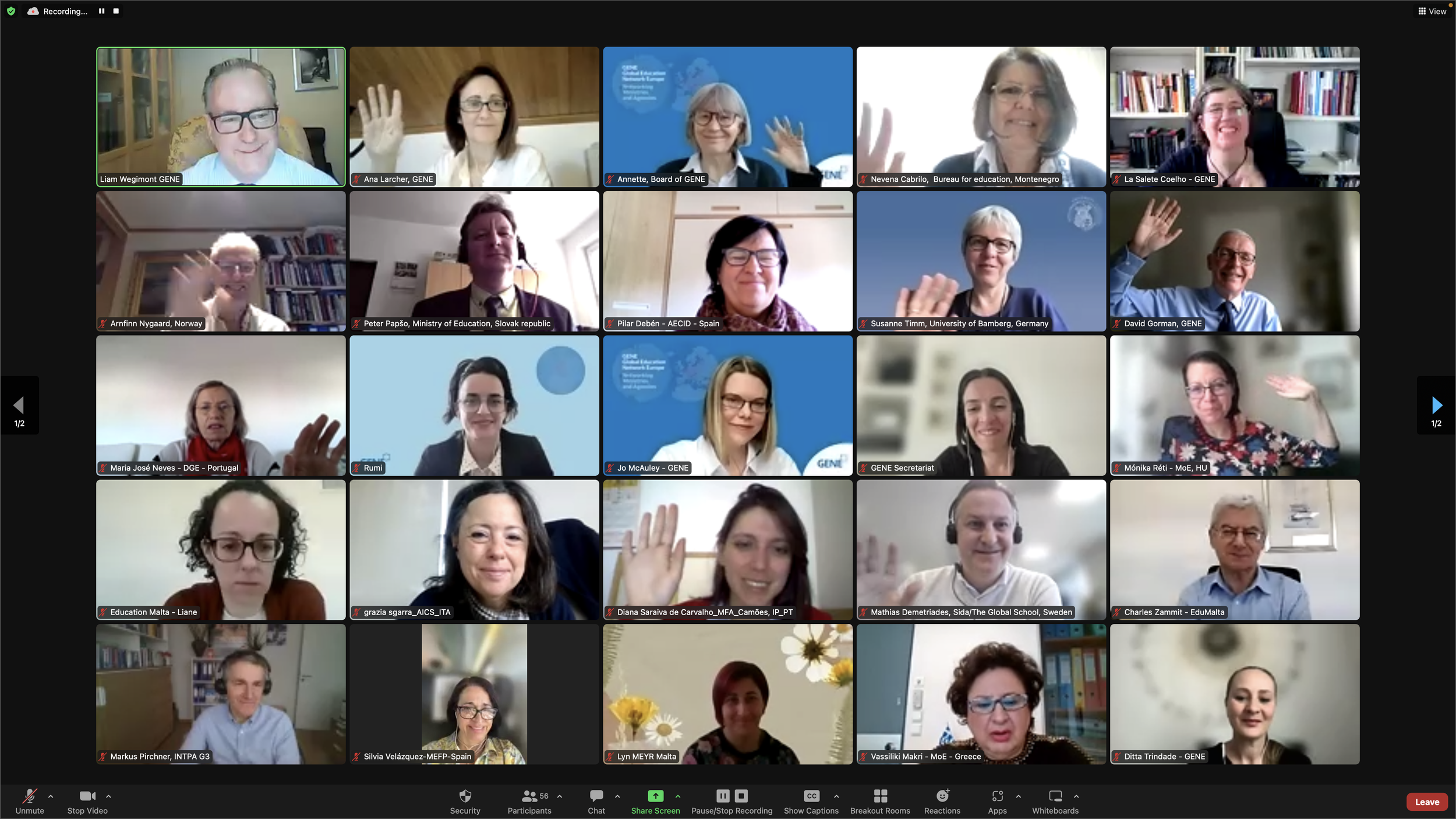





![RT42_photos[3].gif](https://images.squarespace-cdn.com/content/v1/5f6decace4ff425352eddb4a/1607444964351-KF3AZ7LRM8FS0GWP13RP/RT42_photos%5B3%5D.gif)


